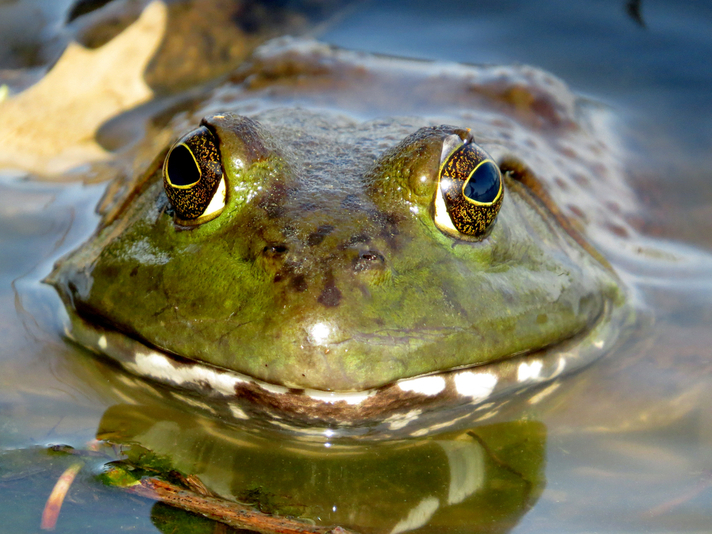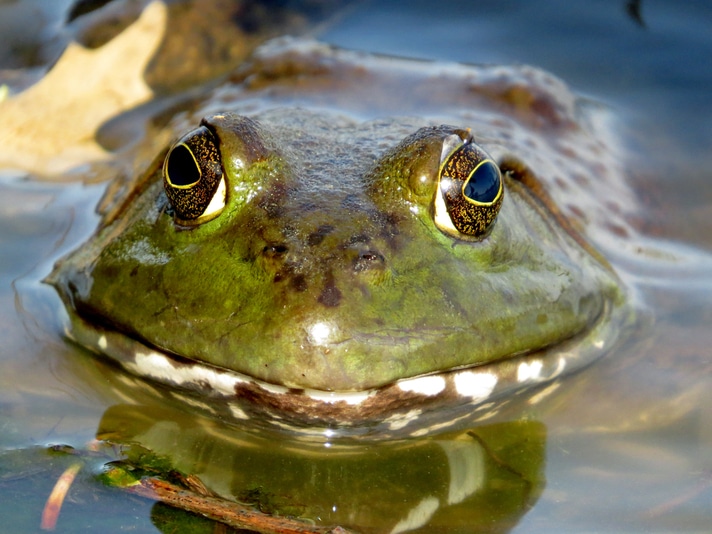The enzyme Cyp27c1 helps amphibians see above and below the water
Scientists have discovered that an enzyme in fish and amphibians enables them to see infrared light, which helps guide them in the often murky waters in which they traverse, according to new research published in the journal Current Biology.

M. L. Haen/Shutterstock
Scientists have discovered that an enzyme in fish and amphibians enables them to see infrared light.
The enzyme, Cyp27c1, is linked to Vitamin A which has been known to promote good vision in low light. Cyp27c1 converts Vitamin A1 to Vitamin A2, which enhances the ability of fish and amphibians to see longer wavelength light including infrared and red light.
Scientists at Washington University School of Medicine in St Louis, MO, led by Joseph Corbo, MD say in the study that the enzyme supercharges the capability of fish to see infrared light. The scientists made their discovery while researching zebrafish, and confirmed their findings in bullfrogs. Bullfrogs have eyes that are designed to see both above and below the surface. The presence of the enzyme Cyp27c1 was found in the upper half the eyes of the bullfrog that look down, but not in the lower half that look up.
“We’ve discovered an enzyme that switches the visual systems of some fish and amphibians and supercharges their ability to see infrared light,” said senior author Joseph Corbo, MD, PhD, associate professor of pathology and immunology. “For example, when salmon migrate from the ocean to inland streams, they turn on this enzyme, activating a chemical reaction that shifts the visual system, helping the fish peer more deeply into murky water.”
With zebrafish, the scientists found that Cyp27c1-enabled zebrafish moved toward infrared light that was shined in a dark aquarium, but those zebrafish with Cyp27c1 disabled behaved as if they were still in a dark aquarium whether or not the infrared light was turned on.



